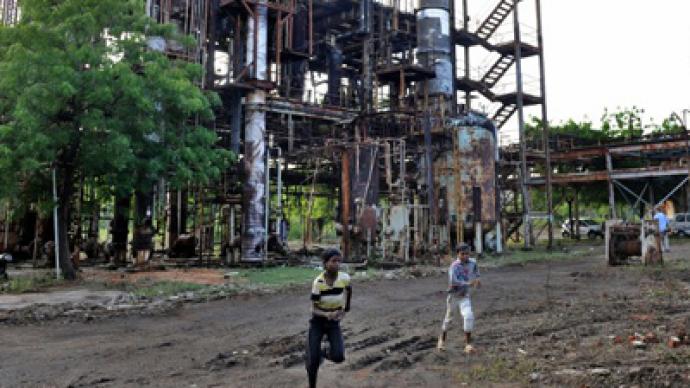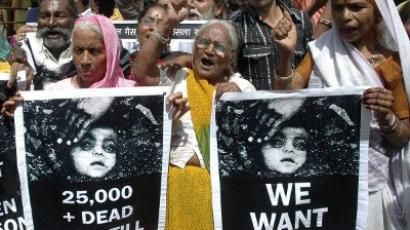Bhopal toxic waste to be shunted to Germany

India’s cabinet has given the green light to a plan to ship 350 tons of solid toxic waste to Germany for disposal from a defunct chemical plant in Bhopal, the site of the world’s worst industrial disaster.
The contract worth $4.5 million is to be finalized in three to four weeks, Madhya Pradesh Gas Relief and Rehabilitation Minister Babulal Gaur told reporters on Friday in New Delhi.The German government-run Society for International Cooperation (GIZ) will process the waste, which is to be shifted to Hamburg in five airlift deliveries, the Indian official said.The company however said the plans were not that specific yet, and that the decision on how the waste would be transported and disposed of had not been taken.The chemical plant in Bhopal, Madhya Pradesh state, owned by the American company Union Carbide suffered a major leak of toxic methyl isocyanate gas in 1984. A deadly cloud covered slums surrounding the facility, killing thousands of people immediately and tens of thousands in the following years. The exact number of people affected is still subject to debate, but the event is considered one of the world’s worst industrial disasters.The waste to be incinerated in Germany however is not connected with the notorious poison gas. Rather it comes from indiscriminate dumping of chemicals – pesticides and heavy metals – between 1969 and 1984. The waste is currently stored inside a warehouse at the site.The government’s disposal plan was criticized by some campaigners in India, who said it would allow Dow Chemical Co, the current owner of Union Carbide, to escape responsibility for the clean-up. The activists believe that the cleaning operation should be performed by the owner of the plant.They are also unhappy that the plan won’t address the contamination of soil and groundwater in the area. Activists say between 25,000 and 50,000 tons of toxins have been released into the environment over the years, causing birth defects and diseases in the local population.Some environmental activists in Germany also voiced their opposition to the plan, saying the waste should be incinerated in India. GIZ argues that India has no technology to dispose of the toxic material in a safe way.













